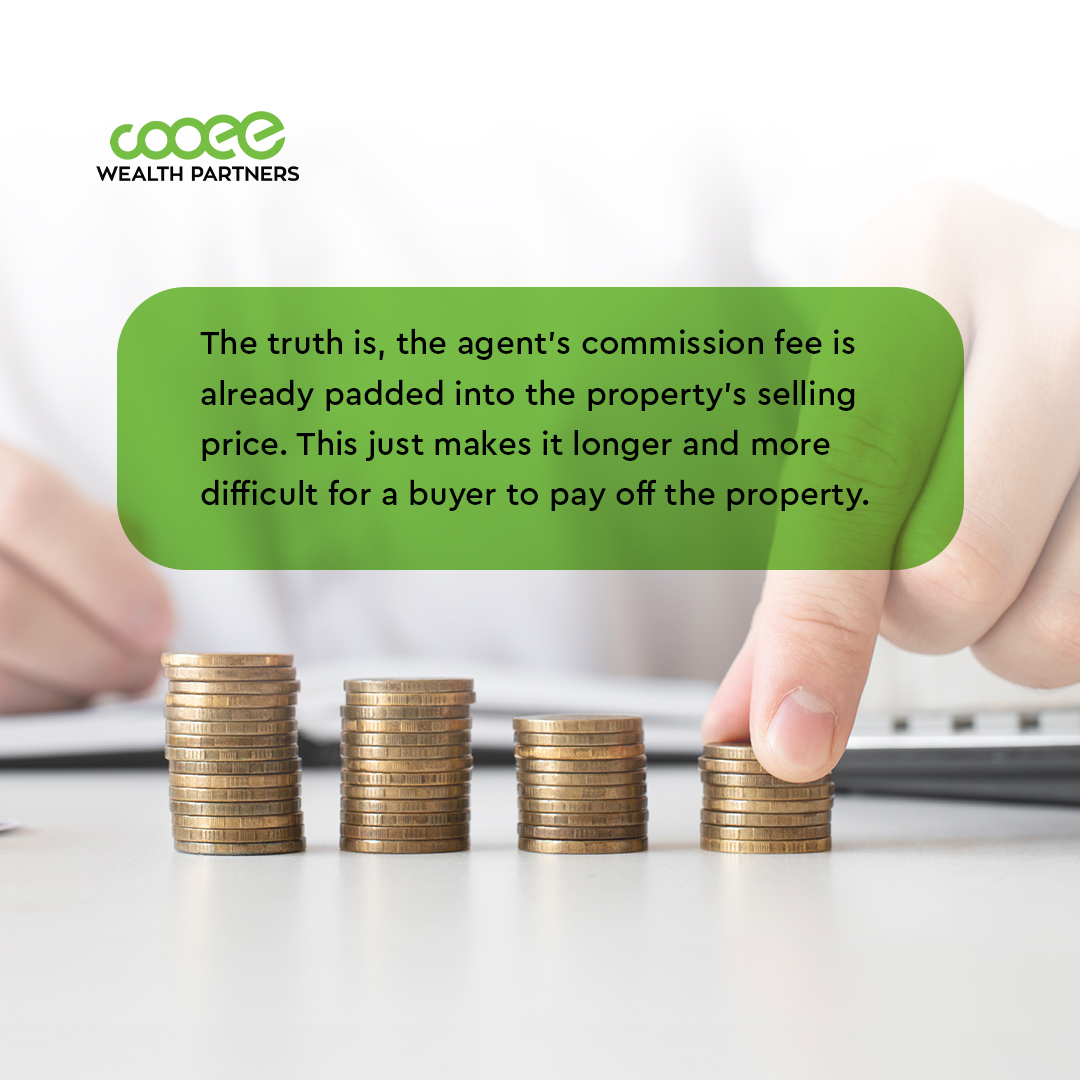
Navigating the property market can be tricky business, particularly for investors who are time-poor due to work and personal commitments. Finding the time to not only thoroughly research the market but also to view listings and follow up on contract details can be time-consuming and overwhelming.
This is where buyers’ agents come into play. Growing in popularity, these licensed professionals alleviate pressure on the investor themselves by sourcing relevant properties, attending open homes and taking care of negotiations. They can even bid at auctions on behalf of the potential buyer.
In many cases, a buyer’s agent will have access to a wider variety of properties (some that aren’t even listed!) thanks to their large network of contacts. And their knowledge of the market is generally second to none.
That said, as an investor, it is important you don’t fall into the trap of relying on an agent who is not meeting your expectations. With a growing interest in the area, we are finding a lot of fly-by-night “agents” who are popping up and taking advantage of buyers.
The key is to do your research before hiring your buyer’s agent and understand if their interests are aligned with yours – or the vendor’s.

A buyer’s agent should be working for the buyer, not the vendor, but some of these agents are receiving a commission from the vendor, which means that these “buyer’s agents” are actually prioritising the vendor’s interests.
In our experience, clients often believe that they’re getting a good deal by not having to pay for the services of a buyer’s agent, not recognising the misalignment in interests that arises from these remuneration structures. Furthermore, the purchase price is inflated to cover the expense of the commission, resulting in the client paying well above the market price.
If you have any doubts about the capability of your agent, it’s important to listen to your gut instinct and consider the need to find an alternative advocate. By increasing your knowledge and understanding of buyer’s agents (and how they’re supposed to help you), you can optimise your search for the right property.
3 red flags to look out for in a buyer’s agent

For those who are thinking about enlisting an agent, or already have, it’s important to keep an eye out for the following issues.
1. They lack experience or qualifications
Long-term success comes down to experience, knowledge and the ability to learn and grow. You don’t want to be led astray through misinformation or unsound financial advice coming from an inexperienced agent.
When hiring your buyer’s agent be sure they have relevant field experience. We recommend considering the following factors:
- Industry-related experience – Ideally you want your agent to have a decade of real estate buying experience under their belt and a good track record.
- Credentials – Don’t take their word for it, ask to see and hear more about their qualifications. Be sure to check with your state-based fair trading body about what licenses and insurances an agent should hold.
References – Talk to previous clients where possible, but at the very least ask to read testimonials. It is also worth verifying how strong the buyer’s agent’s contacts are within the industry.
- LinkedIn – Check their LinkedIn profile. For many Buyers Agents this is their first job in this space.
It is always best to work with someone who has the relevant industry education and experience as they can provide you with calculated and up-to-date advice.
2. They have a questionable commission structure
The adage “you pay for what you get” rings true when it comes to hiring a buyer’s agent. A reputable agent with solid sales and great success will charge more than someone who is still establishing their career.
But exactly how much should you be paying your buyer’s agent?
Generally, your agent will base their fee on one of the following models:
- Fixed fee paid by the purchaser – Prices will vary depending on the value and complexity of the property purchase.
- Percentage-based fee paid by purchasers – The commission will be calculated from a percentage of the property’s purchase price.
Commission paid by the vendor – This is the method that buyers must be wary about. The vendor may be paying for the commission of the agent, but that can only be the case if the vendor has padded the price of the property to include the agent’s commission fee.
When it comes to a commission-based model, things can get a little tricky. In basic form, a commission is calculated from a percentage of the property’s purchase price. Then there is the risk of getting caught up in a property buyer’s club situation. The commission may be rebated but it is paid to the buyer from a portion of the agent’s real estate commission, which gives the illusion that buyers get a portion of their money back. However, the club may still charge a fee that is exactly the same price as a commission.
Another dodgy trap some buyers get stung by is believing it’s more cost-effective to utilise the services of a seller’s agent because they don’t charge a commission fee like buyer’s agents do.
Don’t fool yourself.
The reality is, the commission fee is already padded into the property’s selling price, and this can make it more difficult or longer for a buyer to pay off the property because the price has been seriously jacked up.
The key message?
Ensure you do your research on commission models and know exactly what you are signing up for so that you aren’t left with any unwanted surprises. We believe that, as the purchaser, you should pay your agent to ensure that they are working for you and your interests, not the vendor.
It is definitely worth seeking advice from financial wealth experts before signing a contract with a buyer’s agent.
3. “Borderless” agents that don’t have the appropriate licence
One of the benefits of working with a ‘borderless’ buyer’s agent is that they can work in any state or region of the country. This means they should have wider industry knowledge and access to many more potential investment properties.
When working with a national buyer’s agent, you need to ensure they do have the required knowledge for buying in various regions, as well as a focus on necessary due diligence and meet all licensing laws, which differ from state to state.
3 questions you should ask a buyer’s agent
1. Who do you work for?
No one likes a pushy salesperson and you don’t want to find yourself working alongside one to find the perfect property. It is important to identify exactly who your buyer’s agent works for and rule out any possibility that they may be a seller’s agent.
So, what exactly is a seller’s agent? Also known as a vendor’s agent, this is someone who works for the vendor. Their main aim is to help sell the property for the highest price – and they get a cut of the sale price too.
In simple terms, if your agent works for the vendor, then they’re a seller’s agent even if they’re promoting themselves as a buyer’s agent. Be sure to verify their position by checking with past clients and property sales.
2. What’s the ratio of owner-occupiers and investors in the neighbourhood?
Why does this matter, we hear you ask? For good reason!
The number of owner-occupiers indicates more about a location than you may have first thought. But first, let’s define the term. Owner occupancy is when the property owner lives in the home as opposed to playing the role of landlord and renting it out.
When a street has a large percentage of owner-occupiers, it means two things – that the location is highly sought after and attractive to property buyers. And secondly, there is the added benefit of more potential growth in capital gains (when people do sell, they do so with emotion, which in turn can create higher prices) and less competition for renters and in the future sale of the house (investors tend to sell faster than owner-occupiers.
As any good wealth manager or financial expert will tell you, demographics should play a vital role in shaping your property investment strategy.
3. What does the development pipeline look like in the area?
Your buyer’s agent should be able to provide you with in-depth details about any future development or plans for the suburb you are hoping to invest in. The key to increasing equity in your home, and creating solid competition when you do decide to on-sell your investment property, is to buy in an area that is capped. Areas that boast a lot of housing – or future housing developments – are not a good idea as you need high demand and low supply to maximise any future sale and wealth-increasing opportunity.
Limited future development potential can also negatively impact the value of a property, as it can make it less attractive to potential investors or buyers in the future.
In comparison, purchasing in an area with solid infrastructure such as a good public transport network and nearby medical facilities, schools and shopping centres can increase the value of the property due to its location.
Before you begin the journey into property investment, it is important to have a good understanding of supply and demand as well as the difference between a buyer’s and seller’s market. Property experts know that there is a close relationship between these factors and price growth.
So, is working with a buyer’s agent the right choice for you? Talking your decision through with investment experts first will ensure you don’t fall into the trap of signing on with a less-than-adequate agent.
At Cooee Wealth Partners, we only recommend buyer’s agents that:
- Have values aligned with ours and our clients.
- Genuinely work for our client, not the vendor.
- Are multi-strategy and versatile (working on properties across multiple value ranges: income, capital growth, duplexes)
- Have a multi-jurisdiction presence.
Book an appointment with us with us and we will help you get back on track in buying the right property for you.






